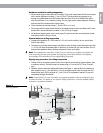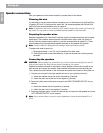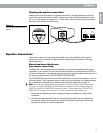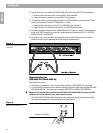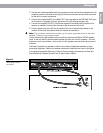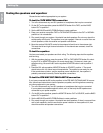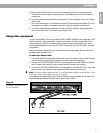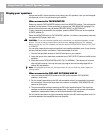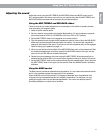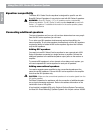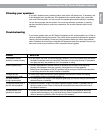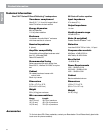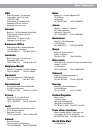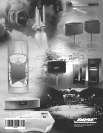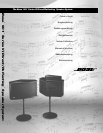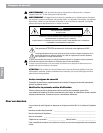
15
English
Using Your 901
®
Series VI Speaker System
Adjusting the sound
Adjust the sound using the MID-TREBLE and MID-BASS sliders and BASS control on the
901
®
active equalizer. Use the tone controls on your receiver only after the MID-TREBLE and
MID-BASS sliders have been set according to the procedures below.
Using the MID-TREBLE and MID-BASS sliders
These controls let you make adjustments to compensate for the effects of speaker location,
room acoustics, and program quality.
1. Select a familiar musical piece.
2. Set your receiver tone controls to the center (flat) position. If it has a loudness compensa-
tion control (marked LOUD or LOUDNESS), set it to the OFF or OUT position.
3. Set the MID-TREBLE slider on the equalizer to its center position.
4. Play the selected music through the 901 speakers at normal volume. Move the MID-BASS
slider back and forth several times and listen to the effect. You should hear a significant
change in the fullness of the sound. If you do not, the active equalizer may not be engaged.
Refer to Playing your speakers on page 14.
5. When you are familiar with the effect of the MID-BASS slider, set it to the extreme left. Start
the musical passage again and slowly advance the MID-BASS slider to the right until the
sound is rich and full, without excessive heaviness.
6. Replay the musical passage, this time moving the MID-TREBLE slider back and forth to
become familiar with its effect. You should hear a significant change in clarity of the sound.
7. Set the MID-TREBLE slider to the extreme left and play the passage again. Slowly advance
the MID-TREBLE slider to the right until the sound is clear and detailed without excessive
shrillness.
Using the BASS control
The Bass control provides an alternate bass equalization. It is not a bass enhancement switch,
and it is not intended to boost the bass output of the speakers.
Press the BASS control IN (to position 2) to engage an alternate form of equalization that
changes the way the speakers handle low-frequency information. For example, you may
prefer pipe organ music with the alternate equalization. The control can also be useful in
eliminating feedback or rumble from a turntable.



